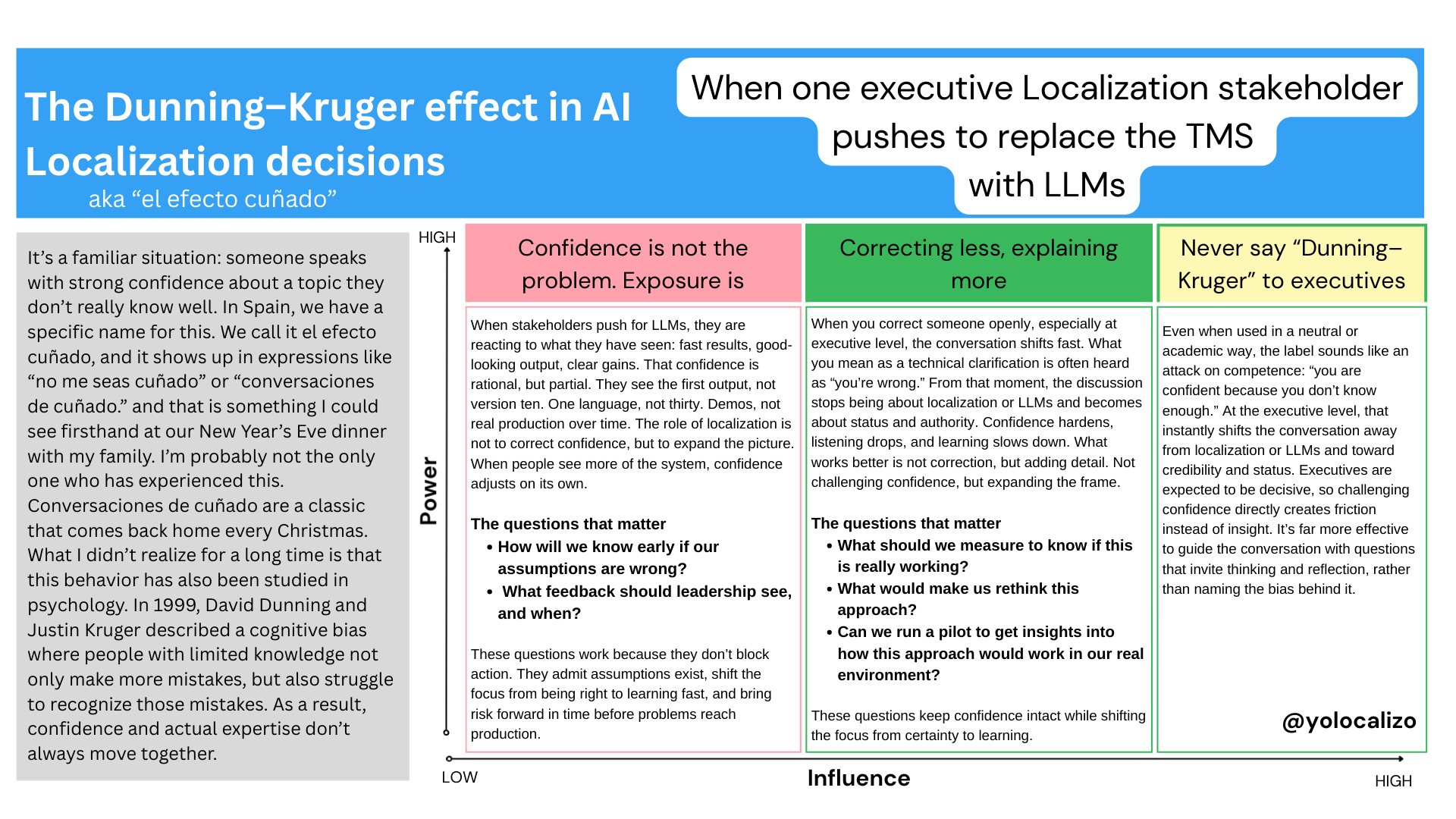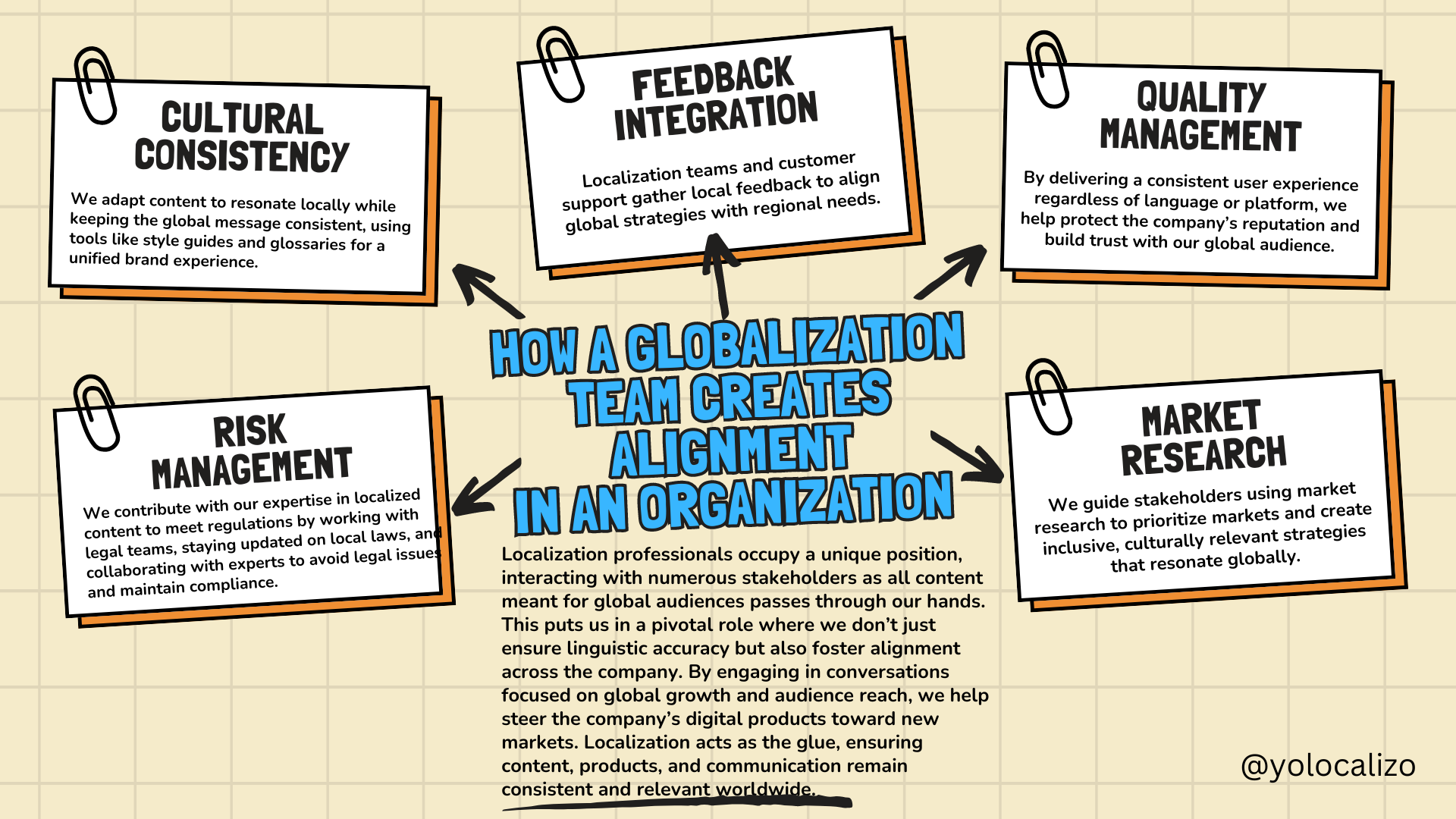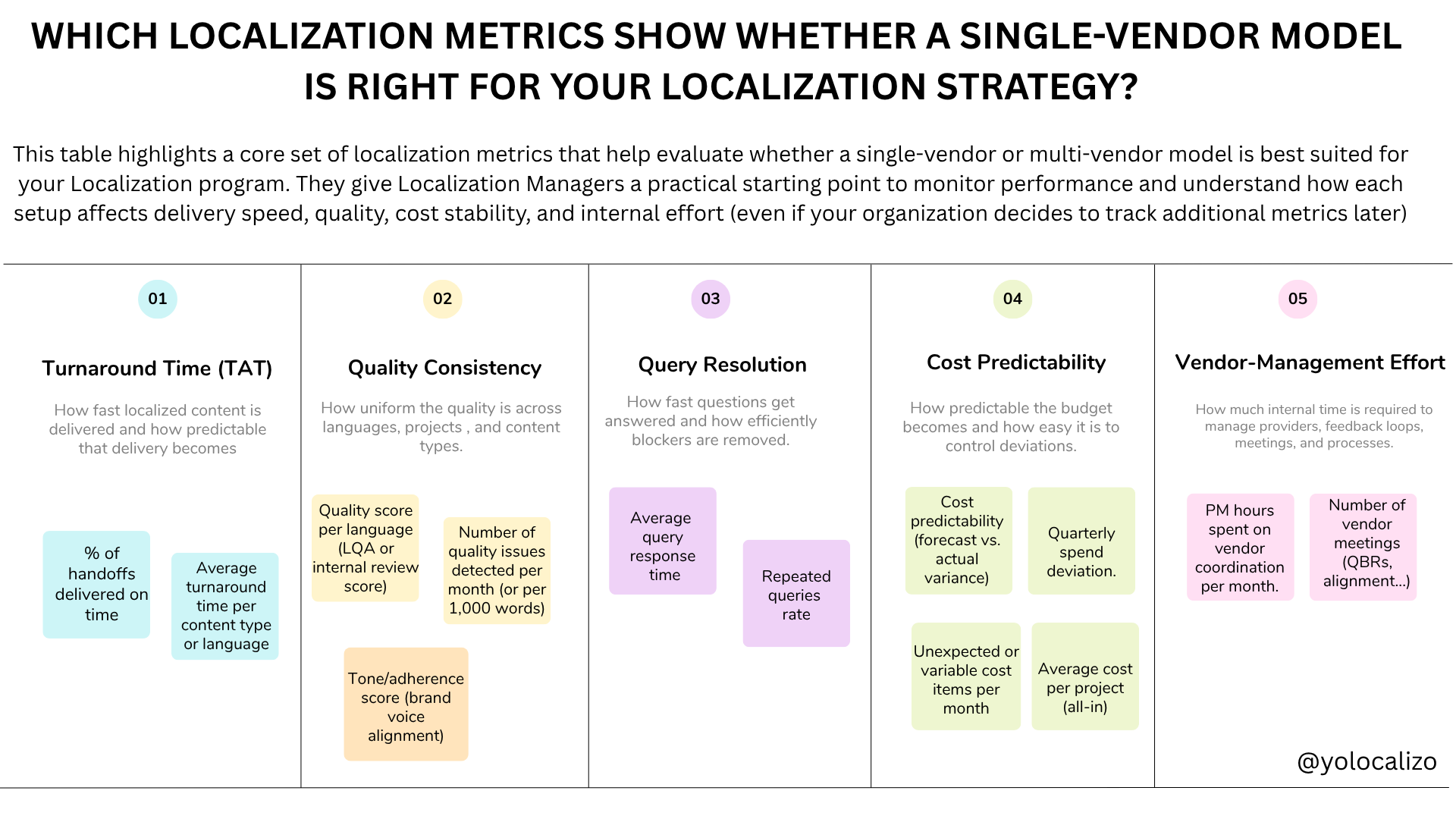My Top 5 facts to promote Localization
It's rare that I don't read a LinkedIn article that sparks a heated debate on whether Localization is a cost center or a revenue enabler. The same goes when I attend meetings and have to slide in the idea that Globalization activities are crucial in helping penetrate a market and build (in my case) a fantastic player experience. It's all about perspective but also about knowing how to explain it. Costs are high or low based on what they help generate and achieve."
In the following paragraphs, I will share with you some statistics that can help convince stakeholders that Localization is just as important, if not more than other aspects of the business. Resources like Nimdzi, GALA, Multilingual, Localization Institute, and App Annie are excellent sources for statistics on Localization.
It's not about impressing stakeholders with a storm of figures, KPIs, percentages, and data. It's better to focus on a few key data points that can help persuade decision-makers in our companies.
From my experience, here are my top five powerful statistics to influence non-localization people to see the importance of this industry:
The world is a big pie. Do you want only to eat one-third of it?
I usually start my evangelization pitch on Localization by showcasing the above graphic. It is particularly effective when I speak with native English speakers, such as producers and game designers (who are by the way my favorite target audience). They understand that there are different languages worldwide, but the strategy here is to make them realize that limiting their software or web to just English only reaches 33% of the world population.
After presenting these staggering statistics, one of two things may happen:
a) They grasp the significance of including localization teams in the development process.
b) They may suggest that users can still use the web, app, or program in English.
In such a case, I explain that users prefer to browse or purchase products in their native language.
This leads me to my following important argument for Localization.
2.-Project Underwear - The more personal the situation, the more people prefer their native language.
Project Underwear is an insightful reference study on the online buying behavior and the impact of language conducted by Nimdzi. It was an extensive research project carried out across 74 countries.
The Project Underwear theory is based on the idea put forth by Nimdzi's co-founder, Renato Beninatto, that consuming content and communicating in one's native language is a highly personal and private matter. In turn, personal experiences and preferences significantly influence buying decisions.
This concept is referred to as the Underwear Effect, referring to the moments when consumers make purchasing decisions while they are in their most intimate and private state, usually while using their mobile phone in their underwear. Language, being something that is closely tied to one's identity, is even more important in such situations.
Therefore, businesses must comprehend the significance of communicating with users in their native language rather than solely in English.
“9 international users out of 10 will ignore your product if it is not in their native language”
3.- Half of the countries in the iOS Top 10 are not English speakers!
This is a crucial factor to consider when developing mobile apps and ensuring that they cater to a diverse audience. As a result, app developers must prioritize localization efforts and ensure that their app is easily accessible and user-friendly for non-English speaking users. With App Annie, developers can easily track their app's performance in different regions and make informed decisions about their localization efforts.
In conclusion, the mobile industry is constantly evolving, and with the growing popularity of non-English speaking countries, localization efforts are more important than ever. And with App Annie, app developers can stay ahead of the game and ensure they reach a wider audience with their app.
“50% of the countries within Top 10 for downloads and revenue in iOS AppStore are not English speaking countries from EU and East Asia”
4.-80% of Android Revenue Comes from Non-English Speaking Markets
If above fact, that doesn't pique the interest of my audience, I usually bring up the fact that in Google Play, this percentage increases even more! With iOS revenue at 50% on Google Play, the revenue jumps to a whopping 80%. This is due to the strong presence of Android devices in East Asia.
5.- The power of Mobile Advertising
Finally, let's not forget about the importance of mobile advertising. This field has been gaining a lot of attention and is expected to grow significantly in the coming years. According to Appia, the statistics are quite promising for those in the localization industry.
“86% of the localized campaigns outperformed the English campaigns in both click-troughs and conversions”
We can provide numerous additional statistics to our stakeholders to highlight the advantages of localizing our products. However, I believe it is more effective to concentrate on the five key metrics I mentioned earlier rather than overwhelming them with excessive numbers and facts.
Throughout my career, I have been asked the question of why a company should localize its products and services many times.
My answer is straightforward and simple:
Localization will increase revenue for the company if a localization strategy is effectively implemented.
Which of these 5 statistics surprised you the most? Feel free to reach out and share your thoughts and other statistics that have aided you in your globalization, Localization, and evangelization journey. Have a fantastic weekend!
@yolocalizo
Source: Xploree.com
Which of these 5 stats surprised you more? Feel free to reach out and share your thoughts and other statistics that it helped you in your globalization localization evangelization journey 👻
Meanwhile, have a fantastic weekend!
@yolocalizo
















For a long time, localization was treated as a pure execution task: translate fast, deliver on time, and stay invisible. That model worked when content volumes were lower and speed was the main challenge. As AI becomes part of everyday workflows, this approach is no longer enough. Translation itself is not the hardest part anymore. The real challenge is deciding what content deserves attention and how AI fits into the broader content ecosystem. This shift highlights a deeper change: moving from simply translating content to actively managing it.